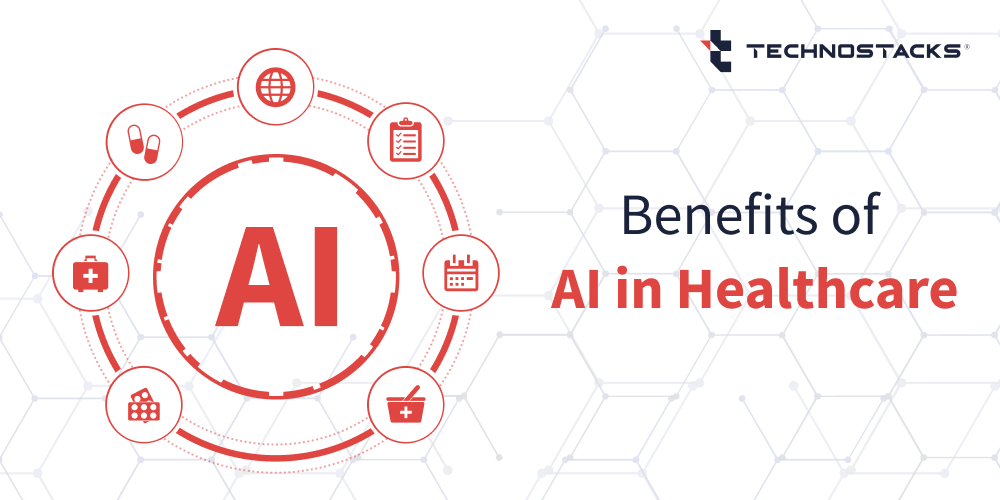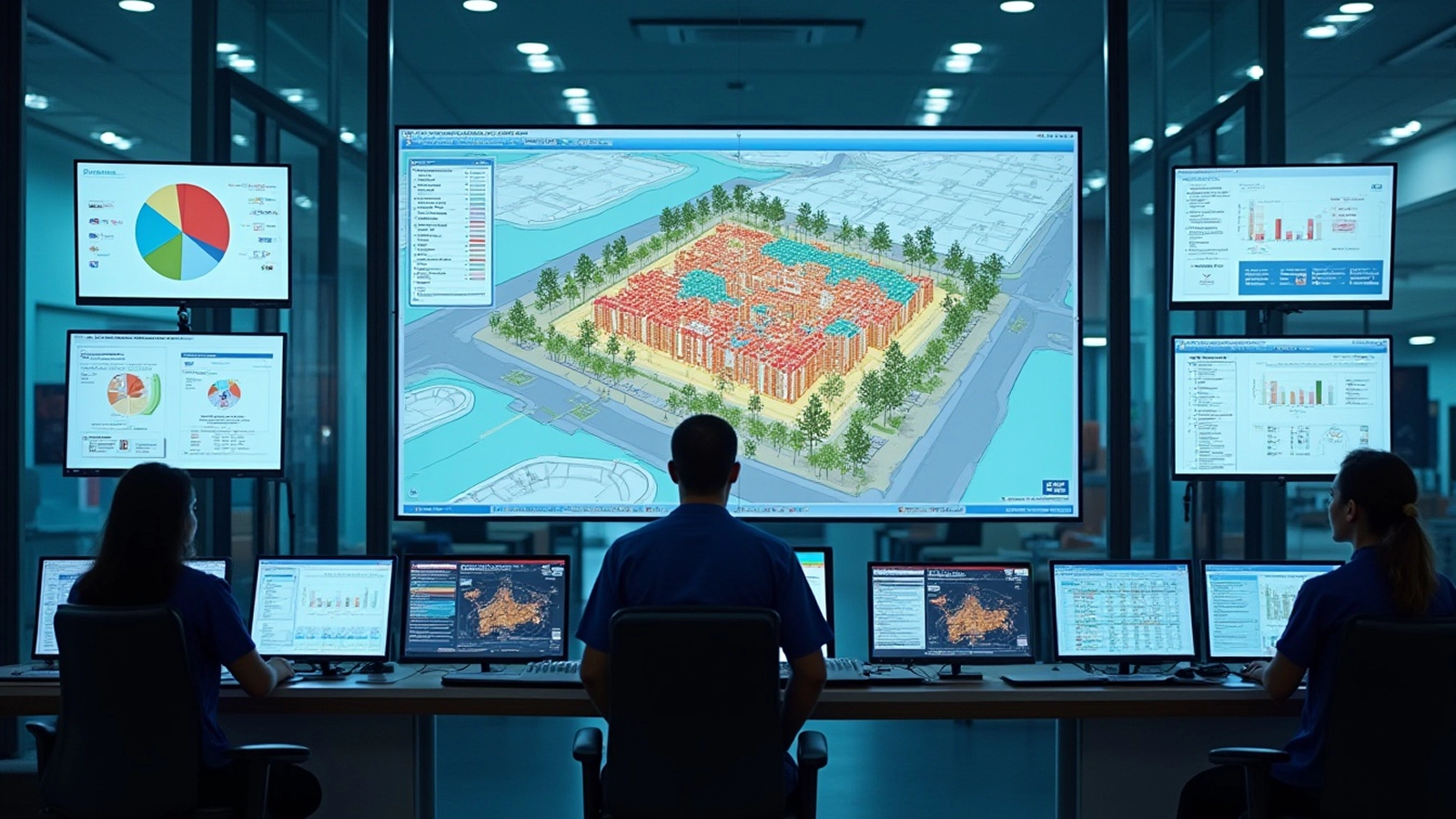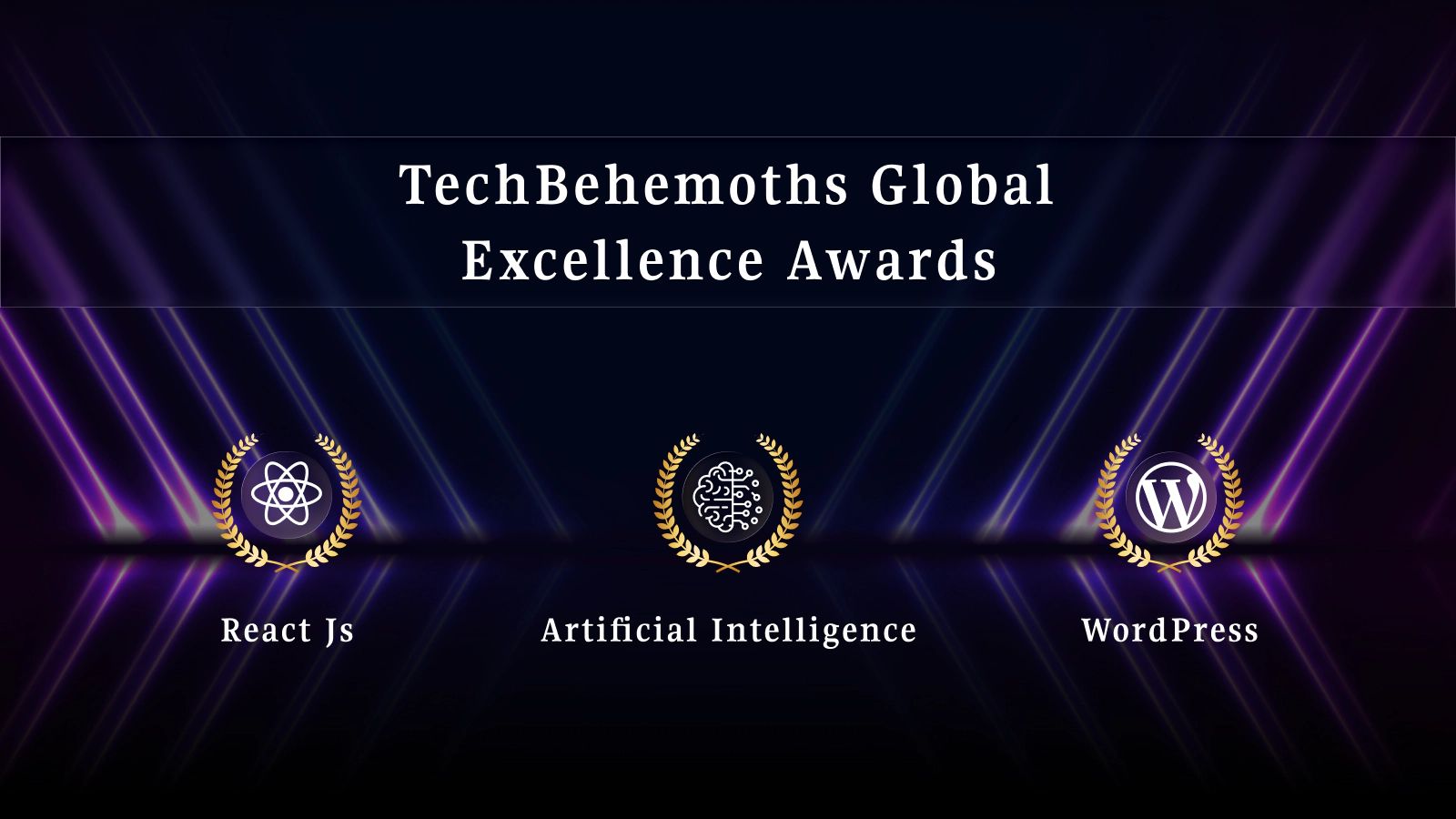Benefits of Artificial Intelligence in Healthcare
Technology has changed how industries operate since every process is getting automated, which helps achieve better outputs and elevate user experience. Almost every small or big business has resorted to artificial intelligence as per their needs and business goals.
The use and benefits of AI in the healthcare industry has supported healthcare professionals by making processes streamlined and also played a crucial role in developing new pharmaceutical products that render better treatment, no matter how complicated the individual’s case is.
Thousands of healthcare professionals and patients have achieved the desired result. With the speed at which technology is transforming every day, there is still considerable potential for applying artificial intelligence in the healthcare industry. This provides a platform for professional growth and simplifies the most crucial healthcare processes like surgeries, patient management and more.
As per the report by Statista, the global healthcare AI market is forecasted to be worth almost 188 billion U.S. dollars and It is expected to grow at a compound annual rate of 37% by 2030. So it’s clear that in the upcoming years, we will show more use cases of artificial intelligence in the healthcare industry.
In this article, we will highlight the advantages of AI in healthcare and render a picture of what people should expect from the industry’s future. Undoubtedly, there aren’t any chances of the sector slowing down; thus, the future holds potential.
What is AI in Healthcare?
Before we discuss the benefits of AI in healthcare, it is essential to understand what processes fall under this category to get clarity on the topic. Artificial intelligence in the healthcare sector is a term that defines the use of machine learning, technological algorithms, and reasoning-based technology in the medical field.
In layman’s language, whenever a machine or computer is used to perform a task that a human earlier did, it is called artificial intelligence. Professionals use technologically developed devices to speed up the learning, processing and making decisions quickly and efficiently.
Commonly, the machines analyse medical data, render accurate outcomes, and help healthcare providers diagnose health conditions and prepare treatment plans with better insights. Therefore, AI helps in proactive and predictive action plans that allow better preventive care and timely treatment of patients, saving lives.
Related Article:- Benefits Of Mobile Apps In Healthcare Industry
How is AI Changing the Healthcare Industry?
The impact of artificial intelligence has been commendable in healthcare, and below are some outcomes that have made healthcare institutions adopt machine learning and technology irrespective of institute size and type of treatment it offers.
- Machine learning and computers are used for data analysis and insights that directly improve the patient’s experience and treatment plans.
The application of AI in the healthcare industry supports professionals from all departments, including surgeons, physicians, technicians, and more. While medical experts can make crucial decisions about treatments and medications by accessing relevant research, machine learning also makes healthcare data management easy.
- Data is of utmost importance in healthcare since patient records, treatment plans and future action plans need to be readily available for quick decision-making. AI has rendered software and applications that can be used to store data digitally and access it within a few seconds without any error. The data can be shared across various platforms, eliminating reliability on paper and, thus, making processes quick and effective.
- X-rays, scans, and medical imaging are a crucial part of medical diagnosis and help make relevant decisions. AI has transformed this segment immensely, and every year, updated and improvised machines and software with the least human involvement help make the right decisions.
- Preventive healthcare has improved with the use of AI-enabled healthcare processes. The professionals can predict health conditions by studying the current scenario proactively.
Related Article:- Role Of Wearable Technology In The Healthcare Sector
Benefits of Artificial Intelligence in Healthcare
Machine learning algorithms, easy access to data, better connectivity, and improvised hardware and machines have accelerated the pace at which the healthcare industry is evolving. AI technologies help professionals cater to more patients daily with improved efficiency, making processes faster. Healthcare operations across various departments, like backend, front desk and diagnosis, have become more efficient. Here are some significant examples stating the ways healthcare providers benefit from AI applications:
Admin tasks
Healthcare providers need to dedicate considerable time to maintaining paperwork and patient-related administrative tasks. Artificial intelligence and machines have automated everyday jobs that save a lot of employee time, which he can dedicate to other essential activities.
Healthcare providers can now spend time interacting with the patients rather than dealing with paperwork, which makes the overall experience better. For example, generative artificial intelligence in healthcare helps technicians and professionals make notes, summarise content and maintain records without consuming time and in a more accurate way. This data is readily available to other departments by using various sharing platforms.
Virtual nursing assistance
Apart from healthcare providers, patients have also become acquainted with using AI to access information that helps them stay aware and vigilant.
Virtual nursing assistance is a segment where AI-enabled chatbots and applications provide information about medications, doctor’s availability and booking schedules. Such AI-powered processes let healthcare providers concentrate on better treatment and recovery.
Related Article:- Benefits Of Mobile App In Doctor-Patient Communications
Medication
Timely and proper medicine dosage is crucial for best results during treatment; however, monitoring it becomes a task since patients are often self-administers. Thus, it becomes necessary for healthcare providers to provide clear instructions and dosage quantities that are easy for patients to read and understand.
The use of AI in healthcare helps patients access their prescriptions online whenever they want to, which means that the chances of dosage errors are reduced significantly.
Machine-assisted surgeries
The medical world is advancing significantly. Now, healthcare experts are using machine learning to make a treatment plan that reduces the risk of infection, blood loss and post-surgery trauma. The exact detail of the health condition and information about a patient before the operation plays a vital role.
Data security
Data is of utmost importance in the healthcare industry since it includes patient’s personal details like bills, insurance, etc. Artificial intelligence used effectively helps in and keeping the data secured at all times. Healthcare institutions take all preventive measures use connected AI platforms to manage data against fraudulent acts.
Quick supportive medical processes
Patients who seek treatment usually opt for insurance, which needs to be verified and granted in time. Earlier, this process was paper-based, which took a long time for the complete verification.
With the involvement of artificial intelligence, the process has become quick, and patients get the benefit even before the procedure starts.
An Endeavour to Better Treatment and Experience
There are several advantages of incorporating artificial intelligence in the healthcare industry that benefits both professionals as well as patients. The potential of the sector is enhanced manifolds, and below are the top pointers:
AI is set to improve user experience
Poor communication between patient and expert is the most common problem that poses a hurdle. When stored using artificial intelligence, patient data helps in effective communication and quick analysis that results in a better user experience.
A healthcare provider can access information within a few clicks and know what treatment was given or is planned, even if a patient opts for treatment from other doctors. Predictive analysis helps deliver quick and effective treatment in an emergency when a doctor does not have information about past health conditions.
AI and machine learning for better efficiency
Healthcare diagnosis using artificial intelligence is accurate and is beneficial to predict severe health conditions like breast cancer, tumours and more. This is helping achieve better efficiency and proactive measures that save thousands of lives every year.
Dermatologists, oncologists, ophthalmologists and other healthcare experts use artificial intelligence best by connecting their specialised diagnosis machines to AI-powered software. The results are actual with every minute detail that helps the expert make a decision and start with the treatment plan instantly.
AI in the medical field helps evade illnesses
With improving diagnosis, the healthcare industry is able to focus on preventive care and adequate health monitoring. Patients who regularly visit for regular check-ups are able to get on-time healthcare solutions and experts render alerts of probable conditions that may arise in future considering the current day scenario.
This has proved beneficial in the case of lifestyle-related illnesses that have become very common these days across all age groups. Health conditions that arise due to the wrong lifestyle can be corrected if a person gets proper guidance and follows it strictly. In fact, AI is also effective in tracking infections that may pose a threat.
AI helps in pharmaceutical developments and drug safety
Recently, the outbreak of Covid worldwide created a panic among people. However, with the use of machine learning, technology and AI, several pharmaceutical companies developed effective vaccinations that could combat further spreading of the virus and help develop an immune system that could fight against the virus successfully.
Had the technology and artificial intelligence not been so advanced, the vaccine development, clinical trials and approvals for mass use would have taken years. However, since the process was mostly automated, the results were derived quickly and effectively, saving lives. Thus, artificial intelligence and automation support pharmaceutical developments, resulting in a more robust healthcare system.
AI and automation help in huge cost-savings
AI’s function in the healthcare industry saves a vast amount of money since processes are faster and produce more accurate results. Pharma companies and healthcare institutions use artificial intelligence to manage data, render better treatment, and reduce the burden on healthcare professionals, both the back and front end.
This helps save money, which benefits the patients since they get proper treatment at lower costs and with better outcomes.
AI governance
Since governments across the world recognise the need to regulate the use of specific AI applications to maintain transparency, data security and work ethics in the healthcare industry, they have laid down guidelines that would monitor the processes and use of technology in a healthcare institution, no matter what is the size and branch it caters to.
This governance benefits patients since it ensures accountability, safety, transparency, responsiveness and sustainability in the long run. This will also ensure that the sector grows continuously and incorporates artificial intelligence and automation wherever possible for improvement.
Related Article:- Impact of IoT in the Healthcare Industry
What Are the Upcoming Possible Ways AI Benefits Healthcare?
Artificial intelligence and machine learning render opportunities that assist healthcare experts and staff to render patient services around the clock. It also reduces human error probability and standardises medical processes, which helps in accurate diagnosis and quick treatment. The applications are expected to continue helping streamline medical procedures.
In fact, future AI tools will further simplify tasks and automate more of the work that medical staff and clinicians are performing today. This would let them focus on more crucial tasks, elevating the treatment quality and patient experience to the next level. Services like X-rays, CT scans, therapies and other procedures will become automated, letting professionals interact with the patients better and understand their health condition in detail.
The advancements in technology are happening every day, and one new avenue that is in trial mode these days is the involvement of robots in simple medical tasks, which is expected to reach the next level in future.
There will be no surprise if these robots are developed and programmed to offer primary care to patients. The future of AI in healthcare has enormous potential that institutions and experts will definitely want to grab and use for better medical facilities.
Related Article:- Augmented Reality In Medical Field
Key Takeaways
This article thoroughly discussed the benefits of artificial intelligence and machine learning in the medical field. Technological advancements have transformed how healthcare professionals operated in the past, and now patients are offered best-in-class services since all time-consuming tasks are automated.
Healthcare experts can focus more on interacting, diagnosing, and treating their patients rather than staying busy with paperwork. Patients benefit from AI in healthcare as all their data is securely stored on a platform where they can access the information in a few clicks.
Also, the most critical diagnosis processes and results are now available quickly, allowing experts to make quick decisions in an emergency—the automation, therefore, benefits professionals at each level and patients suffering from different health conditions.
Technostacks is a top healthcare and fitness app development company with expertise in building medical applications for clients worldwide. If you want to integrate AI into your new or existing medical app, we can help. Our team of healthcare app developers is committed to comprehending your project requirements and finishing it within a specified timeline. Contact us for more information.
FAQs
Q1. What are the benefits of AI?
Artificial intelligence has a crucial role in different sectors since it allows automation and standardisation of processes, increasing the efficiency and output of respective industry professionals. AI applications have made their way into all sectors, like logistics, healthcare, technology, etc., which has led to developments that weren’t expected a few years ago. In the healthcare industry, where vast amounts of data need to be managed every day, AI has simplified it and rendered additional benefits like data security and reduced data management costs.
Q2. What is AI in healthcare?
Artificial intelligence in healthcare can be defined as the use of technologically advanced algorithms, machine learning and AI-powered applications to perform various medical tasks. The applications are used at the primary level, like collecting, saving and managing patient data, to advanced level processes like scans, X-rays, and less invasive surgeries. This implies the significance of AI in healthcare, as it lets the specialists get precise details about the patient’s health conditions and required treatment.
Q3. What is the potential for artificial intelligence in healthcare?
Assessing the current role of AI in healthcare, the potential is certainly immense in the future. The technology sector has been constantly progressing, and new, more promising medical applications are frequently rendered. The sector, powered by AI-based applications, has evolved and achieved a high success rate even in critical health conditions like cancer, surgeries, etc.
Q4. What are the main uses of AI in healthcare?
Healthcare institutions are adopting artificial intelligence and machine learning to enhance efficacy and timely treatment judgments. The main uses of applications are being made to collect and save patient data that is easily accessible whenever needed. Also, machine-based AI is utilised in diagnostics and testing to get quick and accurate results so that doctors can make in-time decisions with the least probability of error. The advanced AI-powered tools deliver exhaustive reports on computers and even mobile phones with the help of advanced applications that healthcare professionals can read and comprehend competently without any technical know-how.
Q5. What are the examples of AI in healthcare?
Artificial intelligence (AI) in medicine is leveraged to search health data sets and uncover insights to assist in improving healthcare results. AI algorithms are fundamentally applied to find diseases and health conditions from images like MRIs, CT scans, and X-rays. These algorithms are trained to precisely spot medical conditions like blood clots and tumors. Virtual assistants, patient data and administrative tasks are some data-related AI processes that healthcare institutions have automated. Also, medical image analytics, predictive analysis, and AI-powered diagnosis are examples of advanced AI forms in healthcare.
Q6. What are the advantages of generative AI in healthcare?
Generative artificial intelligence is used for tools that enhance the user experience with personalised medical recommendations through chatbots whenever a patient seeks help. This is a boon for emergency cases needing quick help before reaching a medical facility. Also, generative AI enhances diagnostic abilities like high-quality scans, anomaly detection tasks, radiology analysis, etc. Thus, AI is playing a vital role in the healthcare sector.









